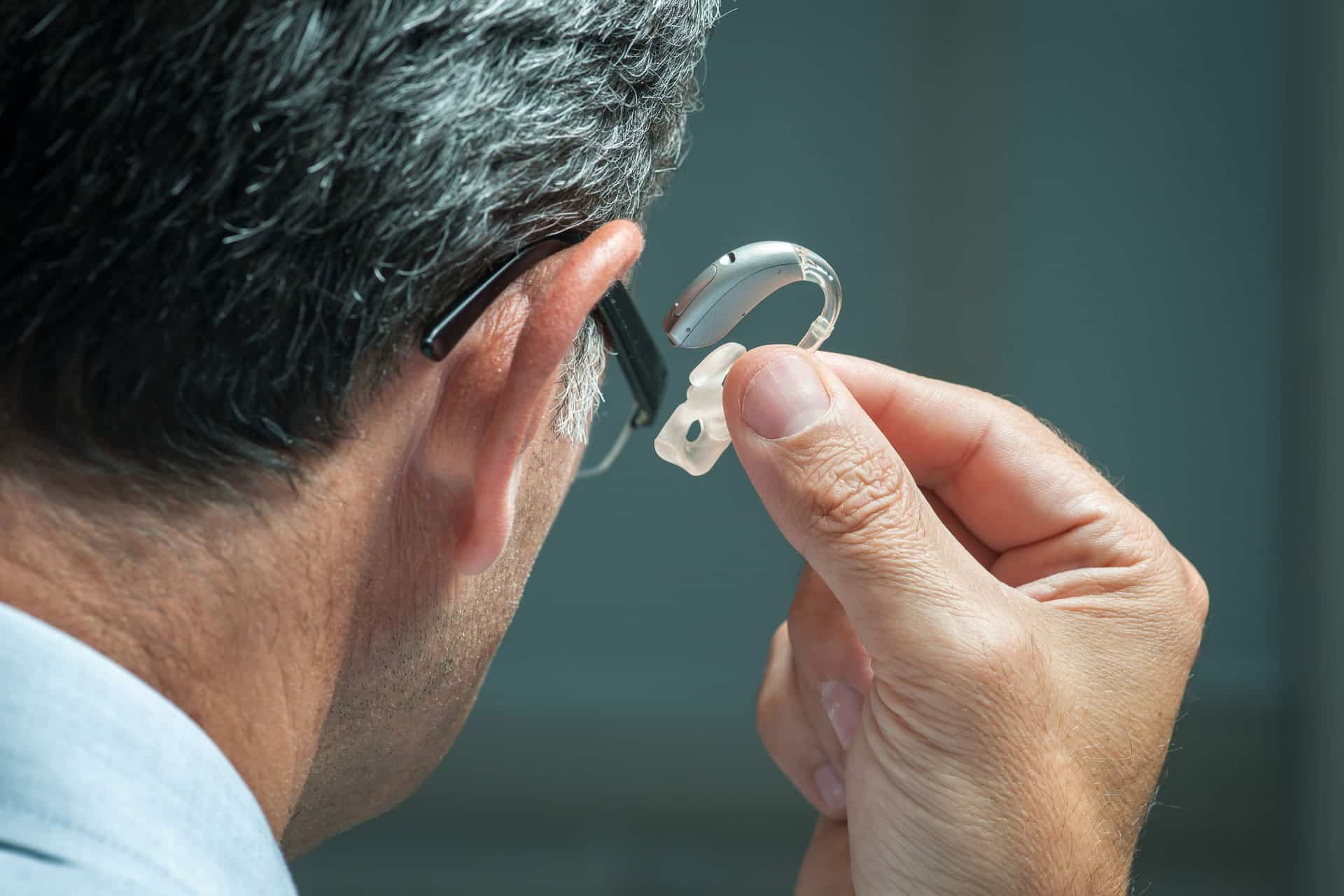Delivery in 2-3 working days
Hearing loss & psyche
People with hearing loss face particular challenges in everyday life. These include, for example, social interaction, participating in conversations, etc. At work, too, communication communication with colleagues and superiors can also become a hurdle for them and result in misunderstandings or even social isolation. This often leads to frustration.
In addition to physical consequences, this often leads to psychological problems or illnesses such as depression and anxiety.
In the following, we would like to inform you about the topic of hearing loss and the psyche and give you a few tips on how those affected and their relatives can better deal with this situation.
Connection between hearing loss and psyche
It is not uncommon for people with hearing loss to feel frustrated by their hearing loss. The constant effort they have to make in everyday life, for example to follow conversations or even just to watch TV, can be both very stressful and tiring.
In addition, the feeling of not being able to participate fully in public life can reduce self-esteem and cause those affected to withdraw from social activities.
What psychological consequences can hearing loss have?
Regardless of a person's age or life situation, hearing loss or hearing problems can have significant psychological consequences for those affected. These include, for example
Loneliness
Fears
Self-esteem
Tiredness
Depression
What can hearing impaired people do if they are under psychological stress?
As stressful, tiring and depressing as the consequences of hearing loss can be - the most important thing is: try not to despair. There are various ways and means that can help you. First of all, you should consult a doctor. They can show you possible treatment options.
You should also talk to friends, acquaintances and colleagues about your hearing loss. Tell them about your problems, as this will help you to avoid many misunderstandings and problems. Ask them to be considerate, for example to speak slowly and clearly in conversations and telephone calls and to allow you to ask questions.
Also talk to other people with hearing problems. Talk about difficulties, problems, your experiences and solutions.
There are also many aids available today that can make hearing, communicating and everyday life with hearing problems easier and improve your quality of life. These include, for example
Hearing aids
Hearing aids that can help people with hearing loss to hear again or to hear better. There are various models with different functions. Whether a hearing aid is right for you and which one is right for you can be found out from your doctor or audiologist.
TV sound amplifier
Many people with hearing loss have problems understanding what is being said on television, for example due to sound effects that are too loud. The result: important information is lost. TV hearing amplifiers such as the OSKAR from faller audio, which minimizes background noise with special speech optimization.
tv headphones
apps
Today, there are numerous different apps for the hearing impaired, i.e. digital applications for smartphones and tablets that make everyday life and communication easier for hearing-impaired people.
Telephones for the hard of hearing
Special Telephones for the hearing impaired make communication easier for people with hearing problems, thanks to various functions such as volume amplification, clarity functions and light signals.
What can relatives of hearing impaired people with mental health problems do?
Living with people who are hard of hearing or deaf can be a particular challenge, as it requires a high degree of sensitivity and patience as well as the willingness to adapt your own everyday life, for example in terms of communication.
It can also be particularly challenging when people with hearing problems also have to deal with psychological stress. As a relative, it is particularly important to show acceptance, understanding and patience.
Offer your support to find solutions to everyday challenges together. Talk about your respective problems, needs and expectations.
Do not leave those affected alone with their problems, as loneliness can further exacerbate mental health problems. Get support from a doctor or therapist. Professional help such as therapies or self-help groups can make a significant contribution to improving quality of life.
Psyche & hearing loss: the flip side
We have now fully explained that hearing loss can have a negative impact on the psyche. But did you know that it can also be the other way around?
Mental health problems or illnesses can also affect hearing. Stress in particular can cause people to suffer sudden hearing loss or develop tinnitus, i.e. noises in the ears such as beeping, buzzing or hissing.
In the worst case, this can lead to permanent hearing impairment. Hearing loss or hearing impairment can in turn lead to further psychological stress. This creates a vicious circle in which hearing loss and psychological stress reinforce each other.
It is therefore important to take hearing problems seriously at an early stage, to have a hearing test if necessary and in any case to consult a doctor if symptoms persist or worsen.



